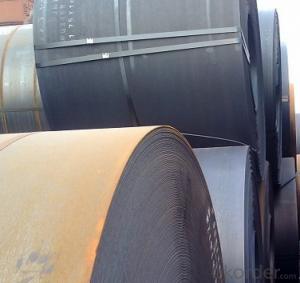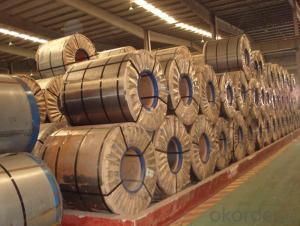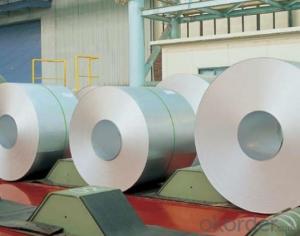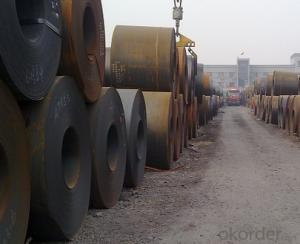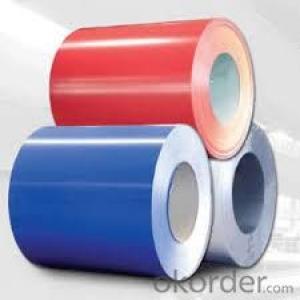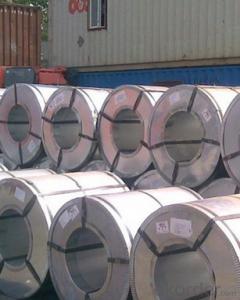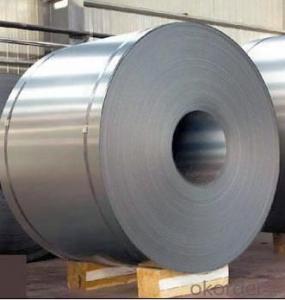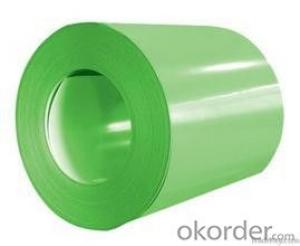Thickness: 0.15 - 2.0 mm
Technique: Hot Rolled
Application: Container Plate
Surface Treatment: Galvanized
Secondary Or Not: Non-secondary
Certification: CE
Special Pipe: Thick Wall Pipe
Alloy Or Not: Non-alloy
Section Shape: Other
Galvanized Steel Coil Hold Rolled DX51+D CNBM
- Loading Port:
- Guangzhou
- Payment Terms:
- TT OR LC
- Min Order Qty:
- 20 m.t.
- Supply Capability:
- 3000 m.t./month
OKorder Service Pledge
OKorder Financial Service
You Might Also Like
1.Quick Details:
2.Packaging & Delivery
| Packaging Details: | standard package |
|---|---|
| Delivery Detail: | 1-4 week |
cold rolled galvanizing steel coil
galvanized iron steel coil
Thickness | 0.15mm--2.0mm |
Width | 50--1250mm |
Zinc Coating | 40gsm—275gsm |
Spangle | Big, small regular spangle and zero spangle |
Surface Treatment | Chromate, Galvanized, Skin Pass, Passivity and Oiled(un-oiled) |
ID | 508mm or 610mm |
Coil Weight | 3--7 Metric Tons and as requirements |
Production | 12,000 metric tons per month |
More information of Galvanized Steel Coils/GI/PPGI/HDG | |
Payment Term | T/T or L/C (We usually charge 30% of the deposit first.) |
Delivery Port | Qingdao Port or Tianjin Port |
Delivery Time | Within 20 days after receipt of T/T or L/C |
MOQ | 25 metric tons or one 20 feet container |
Application | General use, Color coating, Corrugated Roofing making, Outside of the buildings Structure, Deep Drawing and etc. |
Ambition | Reliable product, Competitive price, On-time delivery and High standard service. |
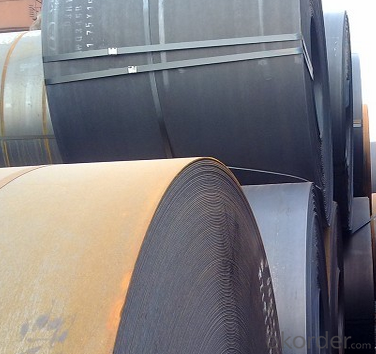
5.What is the application of Steel Coil?
There are two sides,one is out side: Workshop, agricultural warehouse, residential precast unit, corrugated roof, roller shutter door, rainwater drainage pipe, retailer booth;the other is inside: Door, doorcase, light steel roof structure, folding screen, elevator, stairway, vent gutter.
- Q: How are steel coils processed for slitting or edge trimming?
- Steel coils are processed for slitting or edge trimming by feeding the coil into a slitting or trimming machine. The machine uses sharp rotating blades to cut the coil into smaller strips or remove the excess material from the edges. This process helps to create narrower coils or achieve precise edge dimensions for various applications.
- Q: I've created something but it's a huge secret. Anyways I need to know everything and anything about steel. Like the iron steel. ANYTHING AND EVERYTHING. Best answer goes to the person with the most correct information. Please this is really important.
- If you want to know everything about steel, there's no way you're going to get an answer on Yahoo that is comprehensive enough. What you want to do is get some books on steel metallurgy, engineering properties of materials, and maybe machine design depending on your application. Topics will include molecular structure, material properties, alloying, stress and strain, work hardening, creep, computing damage and lifetime cycles, corrosion, toughness vs hardness, heat treating, and a ton of others. If you want to sharpen steel, that is a whole topic in itself concerning different blade profiles and their sharpness, edge holding, ease of sharpening, type of grind etc.
- Q: i need this for school and i need to know what are some advantages of stainless steel.
- It is great for knives because it stays chromed looking without rust. The steel is very hard so holds an edge for a long time. If it contains enough nickel it also is not magnetic, which some applications need this trait It is used for exhaust pipes in good cars, because it doesn't corrode from exhaust like common steel will, so the exhaust pipes last very long. Stainless is used for sinks, ovens, and kitchen appliances because it holds a shine, is very durable , doesn't crack or get burn holes like plastic would. It doesn't rust and is easy to clean and has a good color. It is used on exterior building panels for the same reason , plus it adds the same structural strength as regular steel without the maintenance of painting and rust removal. It is great for pans because you can scrub it without scraping it and it conducts heat well and cleans easily because the surface is smooth and hard So it has the same advantages of strength and fabrication as regular steel, without the downside of rust and ugliness. More cost (it contains chromium and nickel which are expensive) and harder to weld is two of it's shortcomings
- Q: I have heartgold and I don't have a steel type Pokemon to beat lapras. HELP
- I found electric pokemon more effective.. but try Steelix or Riachu
- Q: In pounds per square inch what is the tensile strength of strong steel?
- Depends on what you mean by strong steel. Typically the ultimate strength/yield point of steel used for building structures (beams, columns, joists, plates) is in the range of 36,000 to 50,000 psi. The strength is specified by the designer (in the U.S.) by its ASTM designation. e.g. ASTM A36, A572, A500, A307, A325 ... A36 is typical mild steel, A572 Grade 50 (50,000 psi) is often called high-strength Really high strength steels such as pre-stressing strand can have ultimate strengths more than 10 times these values.
- Q: How are steel coils used in the production of automotive engine components?
- Steel coils are used in the production of automotive engine components by being processed and shaped into various parts, such as pistons, crankshafts, and connecting rods. The coils are first cut, stamped, and formed into the desired shapes, and then undergo heat treatment and other machining processes to enhance their strength and durability. These components are crucial for the proper functioning of an automotive engine, as they provide structural support and help convert the energy generated by the combustion process into mechanical motion.
- Q: Can steel coils be coated with noise-reducing materials?
- Yes, steel coils can be coated with noise-reducing materials. Coating the coils with noise-reducing materials helps to minimize noise levels and vibrations, making them suitable for various applications where noise control is important, such as in automotive, construction, and manufacturing industries.
- Q: How are steel coils used in the production of telecommunications equipment?
- Steel coils are used in the production of telecommunications equipment for various purposes, such as creating structural components, housing enclosures, and mounting brackets. The steel coils are often shaped, cut, and formed into different parts that provide strength, durability, and support to the equipment. Additionally, steel coils may be used in the manufacturing of antennas, transmission towers, and other infrastructure elements that are crucial for telecommunications networks.
- Q: What are the main properties of steel coils?
- Steel coils possess a multitude of characteristics that render them highly sought-after for a vast array of applications. Primarily, steel coils are renowned for their exceptional robustness and longevity. Boasting a high tensile strength, they exhibit an ability to withstand substantial loads and resist deformation. Consequently, steel coils are the optimum choice for applications that necessitate structural integrity and dependability. Moreover, steel coils exhibit remarkable resistance to corrosion. They possess an inherent capacity to generate a protective oxide layer on their surface, thereby preventing rust and other forms of corrosion. This attribute renders steel coils suitable for applications conducted outdoors or in environments characterized by high humidity or exposure to chemicals. Additionally, steel coils exhibit excellent thermal conductivity, facilitating the efficient transfer of heat. This feature renders them widely employed in heating and cooling systems, as well as in the production of various appliances and machinery. Furthermore, steel coils boast commendable formability, enabling them to be effortlessly shaped or bent into diverse configurations without compromising their strength. This quality endows them with versatility and adaptability, thereby proving indispensable in various manufacturing processes such as stamping, rolling, or welding. Lastly, steel coils are available in an extensive range of grades and thicknesses, allowing for customization based on specific application requirements. This versatility renders steel coils suitable for a vast array of industries, including automotive, construction, manufacturing, and energy. In conclusion, the main attributes of steel coils encompass strength, durability, corrosion resistance, thermal conductivity, formability, and versatility. These characteristics establish steel coils as a popular and dependable choice for a myriad of applications.
- Q: What are the disadvantages of using steel coils?
- One disadvantage of using steel coils is their weight and size, which can make transportation and handling challenging. Additionally, steel coils are susceptible to corrosion, requiring regular maintenance and protective measures to prevent rusting. The production of steel coils also contributes to environmental pollution due to the energy-intensive manufacturing process. Lastly, the upfront cost of steel coils can be relatively high compared to other materials, which may not be suitable for budget-constrained projects.
Send your message to us
Galvanized Steel Coil Hold Rolled DX51+D CNBM
- Loading Port:
- Guangzhou
- Payment Terms:
- TT OR LC
- Min Order Qty:
- 20 m.t.
- Supply Capability:
- 3000 m.t./month
OKorder Service Pledge
OKorder Financial Service
Similar products
Hot products
Hot Searches
Related keywords
